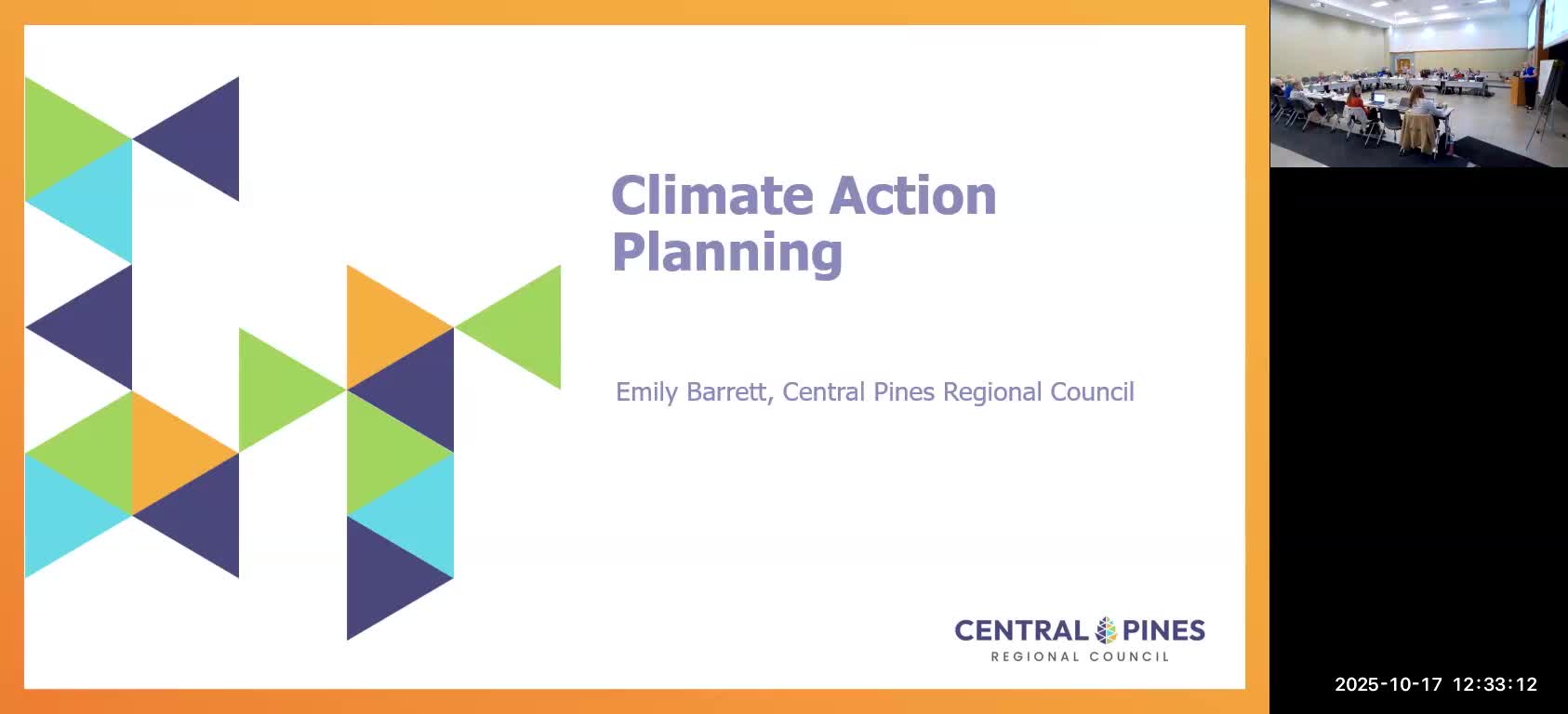Chatham County retreat focuses on a community-facing climate action plan, prioritizing public engagement and metrics
Get AI-powered insights, summaries, and transcripts
Subscribe
Summary
Commissioners, county staff and the Climate Change Advisory Committee used the retreat to refine the scope of a county climate-action plan: set clear goals, identify partners and metrics, and sequence public engagement to coincide with budget cycles and implementation.
Chatham County commissioners, staff and members of the Climate Change Advisory Committee spent the retreat planning how a countywide climate-action plan should look and how it should be communicated to residents. Facilitators urged participants to prioritize how the final product will be used and by whom: a technical reference for staff and developers, or a public-facing ‘‘climate action plan’’ that residents can understand and adopt.
Participants agreed on several near-term priorities: set clear operational goals that will drive prioritization, make the plan actionable by aligning proposed measures to the county’s budget cycle, and broaden outreach beyond technical audiences to schools, farms, hospitals and major local employers. Commissioner comments repeatedly returned to public engagement: multiple speakers urged meeting people “where they are,” tailoring messages for different audiences and using trusted experts and partners to reduce politicization. “If we are less front of the issue and politicizing it…let the face of the issue be the experts,” one participant said.
County staff described the county’s completed greenhouse-gas inventories and said transportation and building energy are leading emission sources locally, with sequestration from forest and farmland also contributing. Staff suggested using those existing inventories as a starting point and projecting future emissions under growth scenarios; advisory members recommended adding clear near-term indicators so residents can see progress.
Legal constraints of the meeting format were raised: staff clarified that this retreat (as noticed) did not include a public-comment period, but commissioners pledged an extensive public engagement process outside the retreat to solicit community input and to include partners such as school systems, developers and agricultural representatives.
Next steps: staff will incorporate the retreat’s priorities into a draft plan framework — including implementation schedules, lead responsibilities and potential funding pathways — and will return for further discussion alongside public outreach events.
